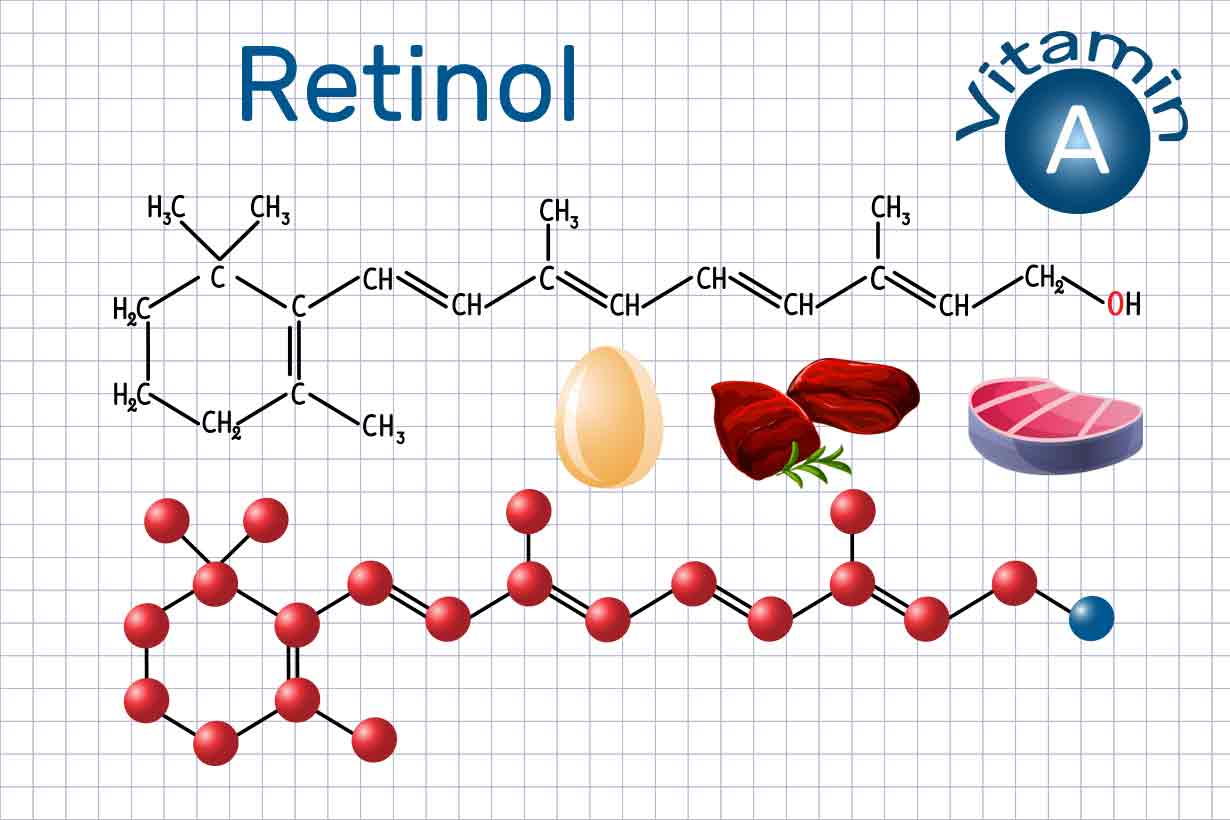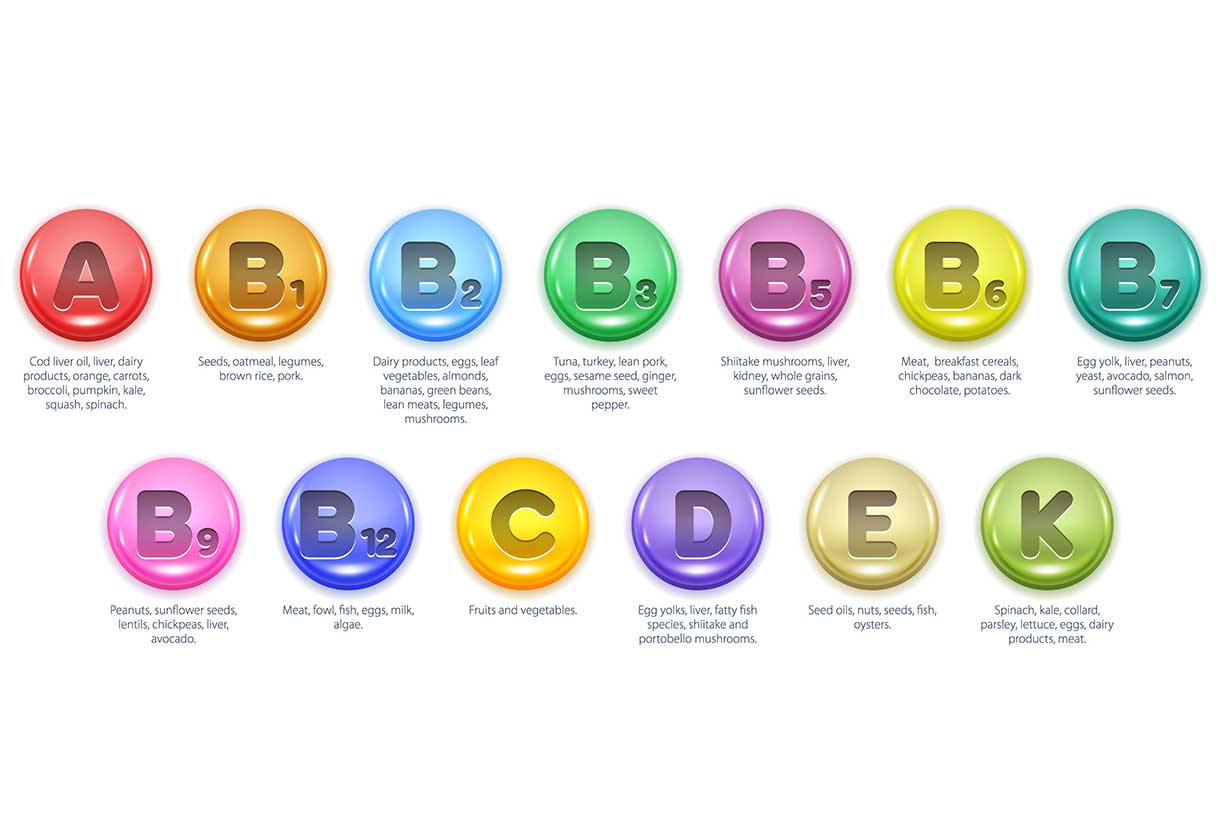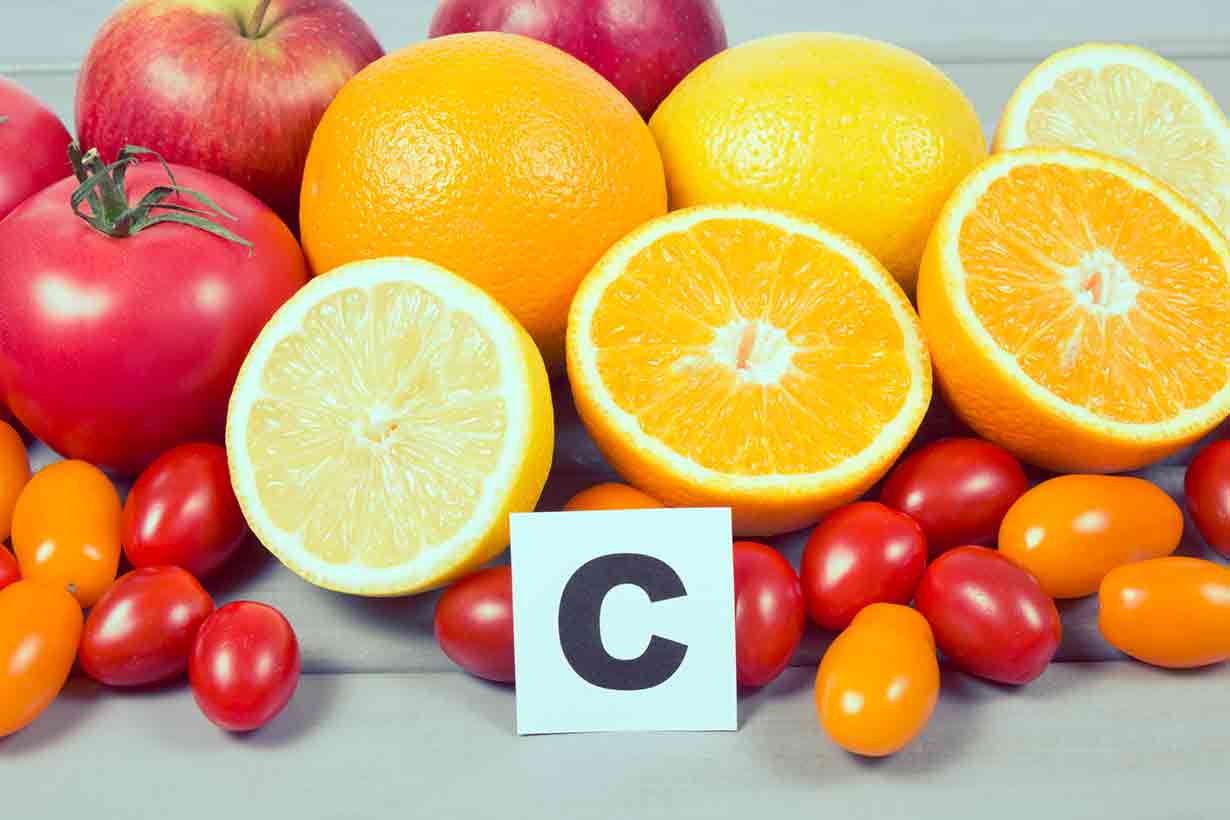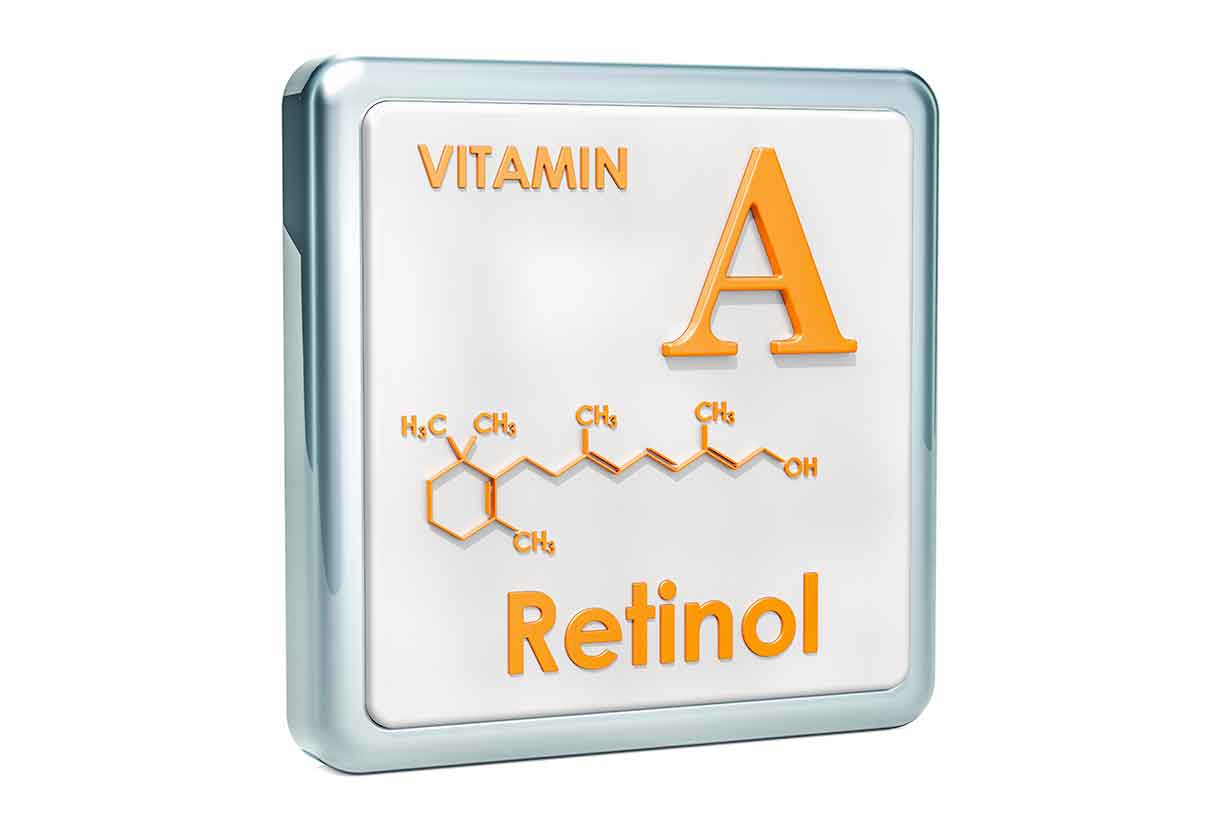Vitamin B12, also known as cobalamin, is a water-soluble vitamin that is essential for human health.
The recommended dietary allowance (RDA) of vitamin B12 for adults is 2.4 mcg (1).
This important vitamin has numerous functions and impacts every cell in the human body.
In this article, we examine the important health benefits of maintaining sufficient vitamin B12 intake.
Table of contents
- 1) May Help To Fight Depression and Improve Mental Health
- 2) Vitamin B12 Gives the Body Energy
- 3) Vitamin B12 May Reduce the Risk of Birth Defects During Pregnancy
- 4) Helps To Prevent Anemia
- 5) Sufficient B12 Intake Lowers Homocysteine Levels
- 6) May Help To Prevent Age-Related Bone Loss
- 7) Vitamin B12 Is Essential For a Healthy Nervous System
- Groups at Risk of Vitamin B12 Deficiency
- How To Get Enough Vitamin B12
- Final Thoughts

1) May Help To Fight Depression and Improve Mental Health
Some research suggests that insufficient vitamin B12 levels may increase the risk of depression and mental health issues.
For example:
- A 2021 systematic review found that women with the highest vitamin B12 intake had a 21% lower risk of depression than those with the lowest intake. However, this association was not statistically significant for men (2).
- In a 2023 systematic review of 20 randomized controlled trials, vitamin B12 supplementation—alongside B1, vitamin D, and folate—significantly decreased depression. The researchers concluded that B vitamin supplementation may be effective in reducing depression symptoms (3).
- A 2023 systematic review of 56 studies involving 37,932 children and adolescents demonstrated that higher vitamin B12 intakes were associated with a 21% decreased risk of depression (4).
However, some studies report conflicting findings. For instance, two systematic reviews found no significant improvements in depression symptoms from vitamin B12 supplementation alone (5, 6).
Further research is needed to clarify the link between vitamin B12 and depression, as well as its interactions with other factors that play a role in depression.
Key point: Although further confirmation is necessary, low vitamin B12 intakes may potentially increase the risk of depression.
2) Vitamin B12 Gives the Body Energy
Vitamin B12 plays an important role in cellular energy metabolism by helping to convert the food we eat into usable energy (7).
In cases of deficiency, tiredness and fatigue are among the first symptoms (8, 9). This is due to the body not being able to create enough red blood cells in the context of insufficient vitamin B12, and these cells are critical for oxygen transportation and energy.
Increasing the intake of B12-rich foods or supplements can help raise plasma levels of the vitamin and restore energy.
It is important to note that in people with adequate vitamin B12 levels, supplementation will not directly increase energy.
Key point: Vitamin B12 helps provide energy at a cellular level from the food we eat. Deficiency symptoms can include tiredness and fatigue.
3) Vitamin B12 May Reduce the Risk of Birth Defects During Pregnancy

Vitamin B12 plays a crucial role in fetal development during pregnancy, and may reduce the risk of neural tube defects.
Research has suggested that:
- Higher levels of B12 may decrease the risk of neural tube defects. Women in the lowest quartile of vitamin B12 levels had a three-fold increased risk of neural tube defects in one large Canadian study (10).
- A systematic review of 40 studies found that mothers and children affected by neural tube defects consistently had lower vitamin B12 levels (11).
- A 2018 review concluded that the evidence “strongly suggests” low maternal vitamin B12 status significantly increases the risk of neural tube defects (12).
Key point: Resolving vitamin B12 deficiency during pregnancy may lower the risk of neural tube defects.
4) Helps To Prevent Anemia
Anemia is a condition that develops when the blood lacks sufficient red blood cells to carry oxygen to tissues and organs.
To make red blood cells, our body needs three key nutrients:
- Folate
- Iron
- Vitamin B12
Ensuring a sufficient intake of dietary vitamin B12 thus supports the healthy production of red blood cells.
When the body lacks sufficient vitamin B12, it cannot produce the required amount of red blood cells, leading to the development of anemia.
This condition is known as megaloblastic anemia, or, more specifically, vitamin B12 deficiency anemia (13, 14).
Studies demonstrate that sufficient vitamin B12 intake can help prevent vitamin deficiency anemia (15, 16).
Key point: Meeting the recommended intake levels for vitamin B12 can help to prevent vitamin deficiency anemia.
5) Sufficient B12 Intake Lowers Homocysteine Levels
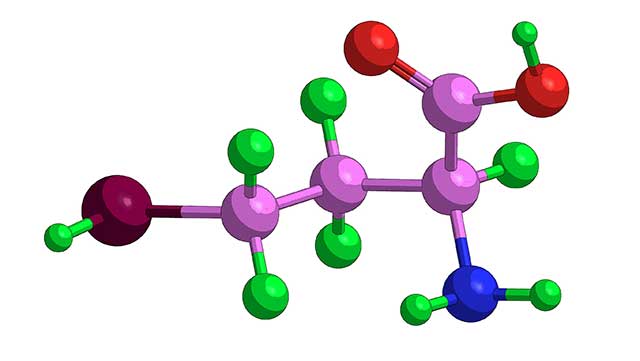
Homocysteine is a by-product of amino acid metabolism, and elevated homocysteine levels are associated with an increased risk of numerous diseases and conditions, including cardiovascular disease, dementia, and age-related macular degeneration (17, 18, 19, 20, 21, 22, 23).
Vitamin B12 helps break homocysteine down into useful components required by the body, thereby lowering its levels (24, 25, 26).
For example:
- A randomized controlled trial found that eight weeks of vitamin B12 supplementation “significantly reduced” homocysteine in 140 participants with elevated levels (27).
- A systematic review demonstrated that vitamin B12 reduces homocysteine levels. However, it was most effective when combined with vitamin B6 and folate (28).
Despite the associations between elevated homocysteine levels and cardiovascular disease, it is important to note that there is limited direct evidence confirming that lowering homocysteine levels through vitamin B12 reduces cardiovascular risk. Other contributing factors may also play a role.
Key point: Maintaining sufficient vitamin B12 levels helps regulate homocysteine levels, which may contribute to better health.
6) May Help To Prevent Age-Related Bone Loss
Bone mass density peaks before the age of 30 and gradually declines with age, which can potentially lead to osteoporosis. This condition increases the risk of fragile bones, decreased mobility, frailty, and falls (28, 29).
There are many ways to help preserve bone mass density, including regular exercise, adequate intake of essential nutrients, and maintaining a healthy lifestyle.
While nutrients such as calcium, phosphorus, and vitamin D are well-known for supporting bone health, research suggests that B vitamins—including B12—may also play a role (30).
- A 2022 randomized controlled trial found that low-dose vitamin B12 supplementation over two years reduced bone density decline in individuals with low vitamin B12 status (31).
- The Royal Osteoporosis Society notes that vitamin B12 helps regulate homocysteine levels, with elevated homocysteine being linked to weaker bones and an increased risk of fractures (32).
High blood homocysteine levels have also been associated with lower bone mineral density (33, 34).
While these findings are promising and the current evidence supports a strong association, the mechanisms are not fully understood, and further research is necessary to establish a causal relationship.
Key point: Maintaining sufficient vitamin B12 levels may help prevent bone mass loss, potentially by lowering homocysteine levels.
7) Vitamin B12 Is Essential For a Healthy Nervous System
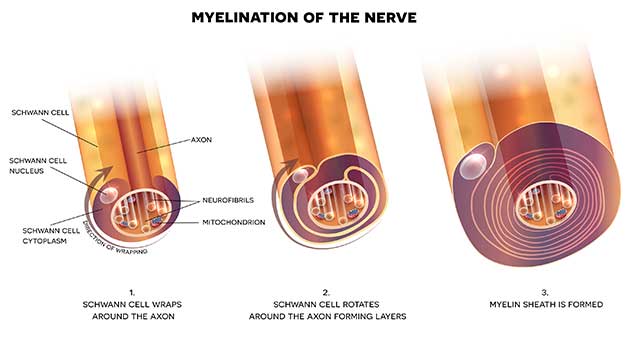
Myelin is a vital substance for the central nervous system. Composed of of proteins and fatty acids, myelin acts as a sheath that surrounds and insulates nerves (35).
One of myelin’s key functions is enabling the quick transmission of electrical nerve impulses around the body (36).
If myelin becomes damaged, the transmission of these impulses slows down, which can lead to neurological problems (37).
Vitamin B12 is crucial for overall neurological health through its role in maintaining myelin (38, 39).
In other words; getting enough vitamin B12 is essential for keeping our myelin healthy, which in turn is critical for neurological health.
Key point: Vitamin B12 plays a critical role in maintaining myelin, which is essential for the proper functioning of the central nervous system.
Groups at Risk of Vitamin B12 Deficiency
Research indicates that certain groups are more likely to have insufficient vitamin B12 levels (40):
- Vegan and vegetarian dieters: Avoiding animal-based foods can increase the risk of B12 deficiency. Individuals following plant-based diets should ensure adequate vitamin B12 intake through supplementation or fortified foods. For more details, see this information from the Vegan Society on vitamin B12 and vegan diets.
- People with gastrointestinal problems: Gastrointestinal conditions such as Crohn’s disease can reduce the absorption rate of vitamin B12. Those with gastrointestinal disorders or symptoms should consult with their healthcare provider.
- Individuals with bariatric surgery: Bariatric surgery can reduce the absorption rate of vitamin B12, increasing the risk of deficiency. Those who have undergone bariatric surgery should consult their healthcare provider (41).
- Older adults: Older individuals can develop atrophic gastritis, a condition that reduces stomach acid production. Sufficient hydrochloric acid is crucial to break down the protein bonds that bind to vitamin B12 in food. According to the National Institutes of Health, adults aged 50 and older should obtain most of their vitamin B12 intake from fortified foods or supplements (42).
Key point: While vitamin B12 deficiency is rare in healthy individuals consuming a variety of animal-based foods, those with gastrointestinal issues, vegan or vegetarian diets, or older adults are at a higher risk and should consider supplementation.
How To Get Enough Vitamin B12
A wide range of animal-based and fortified foods provide significant amounts of vitamin B12.
Examples include:
- Eggs
- Fish
- Meat
- Dairy products
- Fortified cereals
For a comprehensive list of foods rich in vitamin B12, please refer to this guide:
Individuals who suspect their diet lacks sufficient vitamin B12 should consider supplementation.
Final Thoughts
As shown in this article, vitamin B12 is a vital nutrient that impacts numerous biological systems.
To benefit from its role in the body and avoid the potential harms of deficiency, it is crucial to ensure adequate intake.
Sufficient vitamin B12 levels can be maintained through animal-based foods, fortified foods, supplementation, or a combination of the three.

